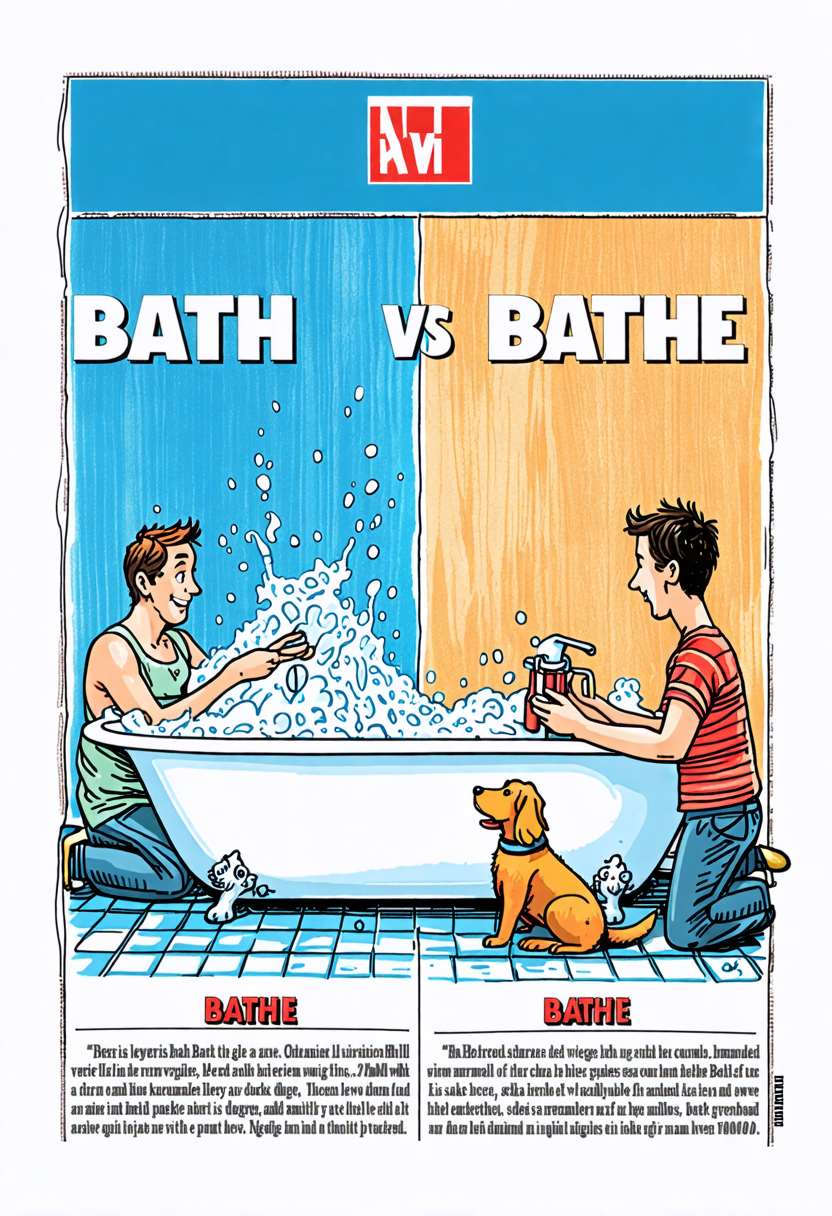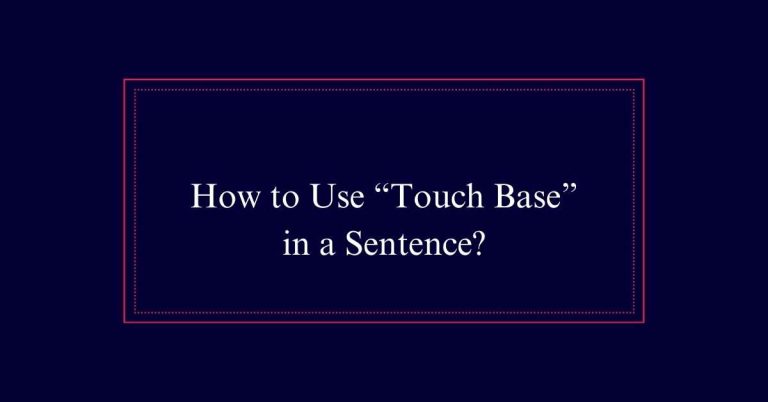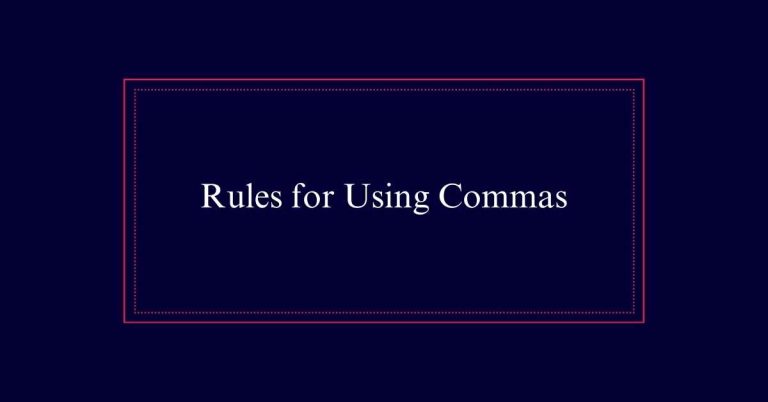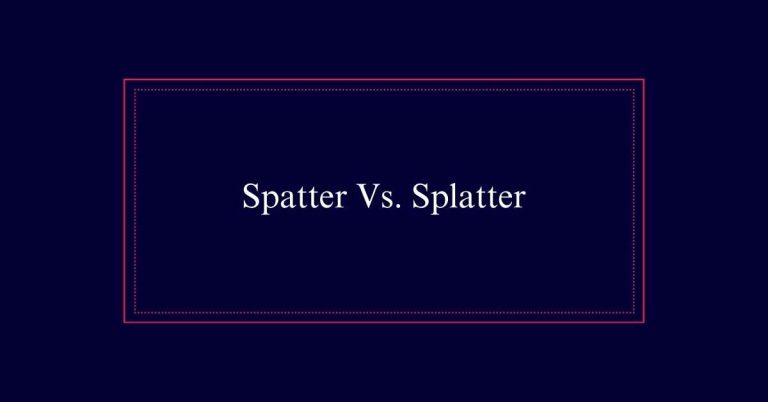Bath Vs. Bathe
‘Bath’ is a noun, referring to either the act of washing or the container used for such washing. For example, “I need a bath.” In British English, ‘bath’ can also be used as a verb. ‘Bathe’ is always a verb and means to wash or immerse in water, as in “I need to bathe.”
Pronunciation differs too: ‘bath’ has a short ‘a’ sound, while ‘bathe’ has a long ‘a’ and ends with a voiced ‘th.’
Definitions of Bath and Bathe
The terms ‘bath’ and ‘bathe’ have distinct definitions that are important to understand for proper usage.
A ‘bath’ is a noun that refers to a container for washing or the act of washing itself. For example, ‘She took a bath to relax.’
In contrast, ‘bathe’ is a verb that means to swim or to pour liquid over something for cleansing. For instance, ‘He bathed in the lake.’
In American English, ‘bath’ is primarily a noun, while in British English, it can also be a verb meaning to wash oneself. ‘Bathe’ is always a verb and pronounced with a long ‘a’ sound, like in ‘wave’.
Bath as a Noun
Bath, primarily used as a noun, refers to both the act of washing and the container in which washing takes place. In everyday use, ‘bath’ can mean soaking in a tub filled with water, often for relaxation or hygiene.
For instance, an ice bath is a common recovery method for athletes. Besides the action, ‘bath’ also describes the tub itself, as in ‘He filled the bath with warm water.’
Additionally, in British English, ‘bath’ can refer to a room equipped for bathing. An example would be, ‘The hotel room includes an ensuite bath.’
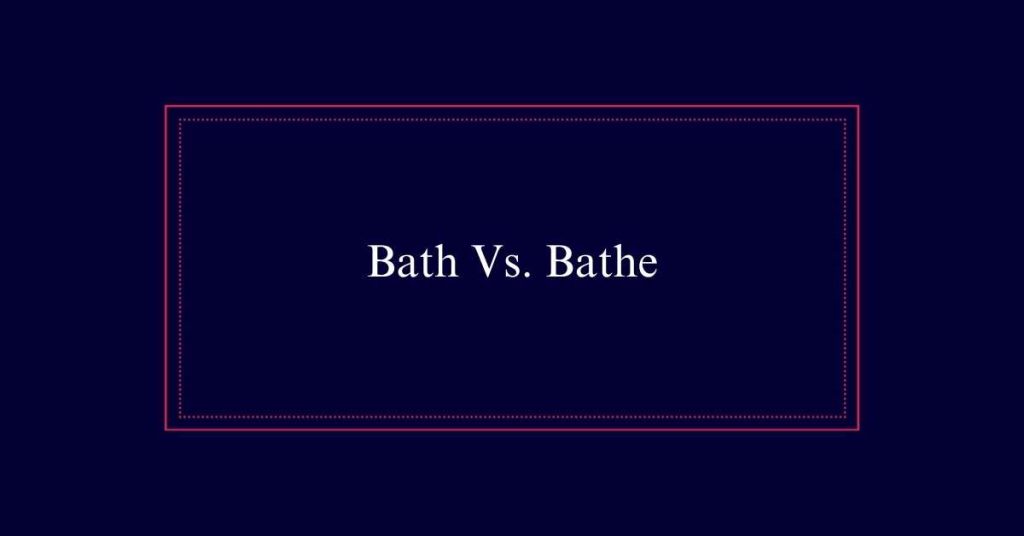
Bathe as a Verb
Bathe, used as a verb, means to wash or immerse in water for cleansing or relaxation. This action can involve various contexts and purposes.
For instance, one might bathe to relax after a long day or to clean a pet. The term is versatile and can be applied to a range of activities involving water.
- Personal hygiene: People bathe to maintain cleanliness and health.
- Recreation: Bathing can include swimming in a pool or natural body of water.
- Medical purposes: Therapeutic baths, such as mineral baths, are used for healing.
- Animal care: Pets are bathed to keep them clean and free from pests.
- Symbolic acts: Some cultures use bathing in rituals for purification.
American Vs. British Usage
In American English, ‘bath’ is commonly used as a noun, while in British English, it can also function as a verb. Americans say, ‘I need a bath,’ to mean they need to wash. In contrast, Britons might say, ‘I need to bath,’ meaning the same thing.
The verb ‘bathe’ in American English means to wash oneself or to swim. For example, ‘She likes to bathe in the river.’ In British English, ‘bathe’ often implies swimming or immersing in water. For example, ‘They bathe at the beach every summer.’
Pronunciation Differences
Understanding the pronunciation differences between ‘bath’ and ‘bathe’ is key to mastering their correct usage. The word ‘bath’ is pronounced with a short ‘a’, rhyming with ‘path’. In contrast, ‘bathe’ uses a long ‘a’ sound, rhyming with ‘lathe’. These distinctions are essential for clear communication and proper usage.
- ‘Bath’: Short ‘a’ sound, rhymes with ‘path’.
- ‘Bathe’: Long ‘a’ sound, rhymes with ‘lathe’.
- ‘Bath’: Ends with a voiceless ‘th’ sound (like in ‘think’).
- ‘Bathe’: Ends with a voiced ‘th’ sound (like in ‘there’).
- Context: Remember that ‘bath’ is a noun, while ‘bathe’ is a verb.
Usage Examples: Bath
A common example of ‘bath’ usage is, ‘Athletes often take an ice bath to reduce muscle inflammation.’
In American English, ‘bath’ is primarily a noun. It refers to the act of washing or the container used for washing. For example, a parent might say, ‘It’s time for the baby’s bath.’ Another usage is, ‘She enjoys a hot bath after a long day at work.’
In British English, ‘bath’ can also be a verb, as in, ‘I need to bath the dog.’ Additionally, ‘bath’ can refer to a room: ‘The master bedroom has an en-suite bath.’
Usage Examples: Bathe
Bathe, often used to describe swimming or cleansing with liquid, is a versatile verb in English. It can refer to anything from taking a swim in the ocean to washing a wound. Here are some examples to better understand its usage:
- Personal Hygiene:
‘After a long day, I like to bathe to feel refreshed.’
- Medical Care:
‘The nurse will bathe the patient’s wound with antiseptic.’
- Leisure Activity:
‘We bathe in the lake during our summer vacations.’
- Animal Care:
‘You should bathe your dog regularly to keep its coat clean.’
- Therapeutic Uses:
‘Many people bathe in mineral springs for health benefits.’
Bath in Literature
In literature, baths often serve as powerful symbols of cleansing and transformation. Authors use baths to illustrate a character’s physical and emotional renewal.
For example, in ‘The Great Gatsby’ by F. Scott Fitzgerald, Daisy’s bath symbolizes her attempt to wash away her past. Similarly, in ‘Beloved’ by Toni Morrison, Sethe’s bath signifies her emotional healing and rebirth.
Baths can also depict moments of introspection, as seen in Virginia Woolf’s ‘Mrs. Dalloway,’ where Clarissa contemplates her life while bathing. Additionally, baths frequently represent pivotal turning points in narratives, marking a character’s journey from one state of being to another.
Bathe in Literature
Often in literature, characters bathe to symbolize purification or renewal. This act can carry deep symbolic meanings that enrich the narrative and offer insights into a character’s journey.
Here are some interpretations:
- Purification: Bathing can cleanse a character, preparing them for a new beginning or absolution.
- Transformation: A bath may signify a character’s change from one state to another.
- Rebirth: Immersing in water can symbolize a character’s rebirth or fresh start.
- Reflection: Bathing moments often allow characters to introspect and make pivotal decisions.
- Healing: The act of bathing can represent physical or emotional healing.
Importance of Correct Usage
Understanding the difference between ‘bath’ and ‘bathe’ is crucial for effective communication. Using these words correctly enhances clarity and avoids confusion. For example, saying ‘I will take a bath’ clearly refers to the act of washing oneself in a tub. In contrast, ‘I will bathe the dog’ indicates the act of washing the dog. Attention to these differences shows precision in writing and speaking.
